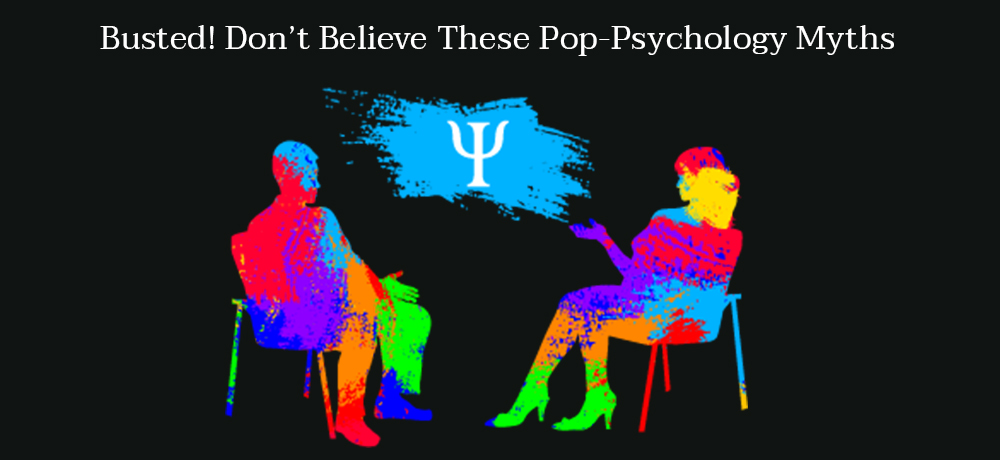- Log in to post comments
Over the past few years that I've been a Psychology student, Ive heard various comments about the subject that are NOT true!

In this Blogpost we will together debunk some of the most common psychological myths that people thought were true!
1. Learning
It is believed and even taught in schools to kids that children learn quickly or more effectively when taught by their preferred teaching method rather than using different learning techniques.
But infact "psychology research shows consistently that people do not learn better when taught via their preferred modality, and that instead the most effective modality for teaching usually varies according to the nature of the material under study."
This means that the amount learnt does not depend on whether you are learning it by rote learning, hearing the text or by taking notes but also depends on the material that needs to be learnt under the study.
An important part of learning is memory. The information encoded in the brain needs to be retrieved adequately for it to be stored. There are a number of strategies for improving memory called mnemonics to help you improve your memory.
2. Myths on social media
Often on social media we see a post with the title " Psychology says that...." , these posts may talk about " if someone is thinking about you", "if you get dreams at night",etc.
The information attributed in these posts is usually completely false and has nothing to do with psychology but rather is comical or a way to secure maximum likes possible or stay trendy on Instagram.
Real psychology makes NO SUCH CLAIMS whatsoever. Dreams can be analysed but cannot be interepreted on the basis of "what colour you saw" or "which shape you saw" to determine how your personality is. THIS IS THE BIGGEST MYTH OF PSYCHOLOGY!
3. Rewards
Another fictitious thing I heard about Psychology was that " Psychology says the best way to change someone's attitude is by giving the person a large reward so that he does the act unconditionally next time"
This is completely false as explained by many many psychologists and their theories of learning!
Research on “cognitive dissonance” theory demonstrates the best way to change someone’s attitude is to give him or her the smallest reward possible needed to do so.
These were some of the common myths related to Psychology! In the coming week we will debunk more myths each day related to this subject and realise how Psychology is more related to the Sciences and not false information! - Soumya Gulati
